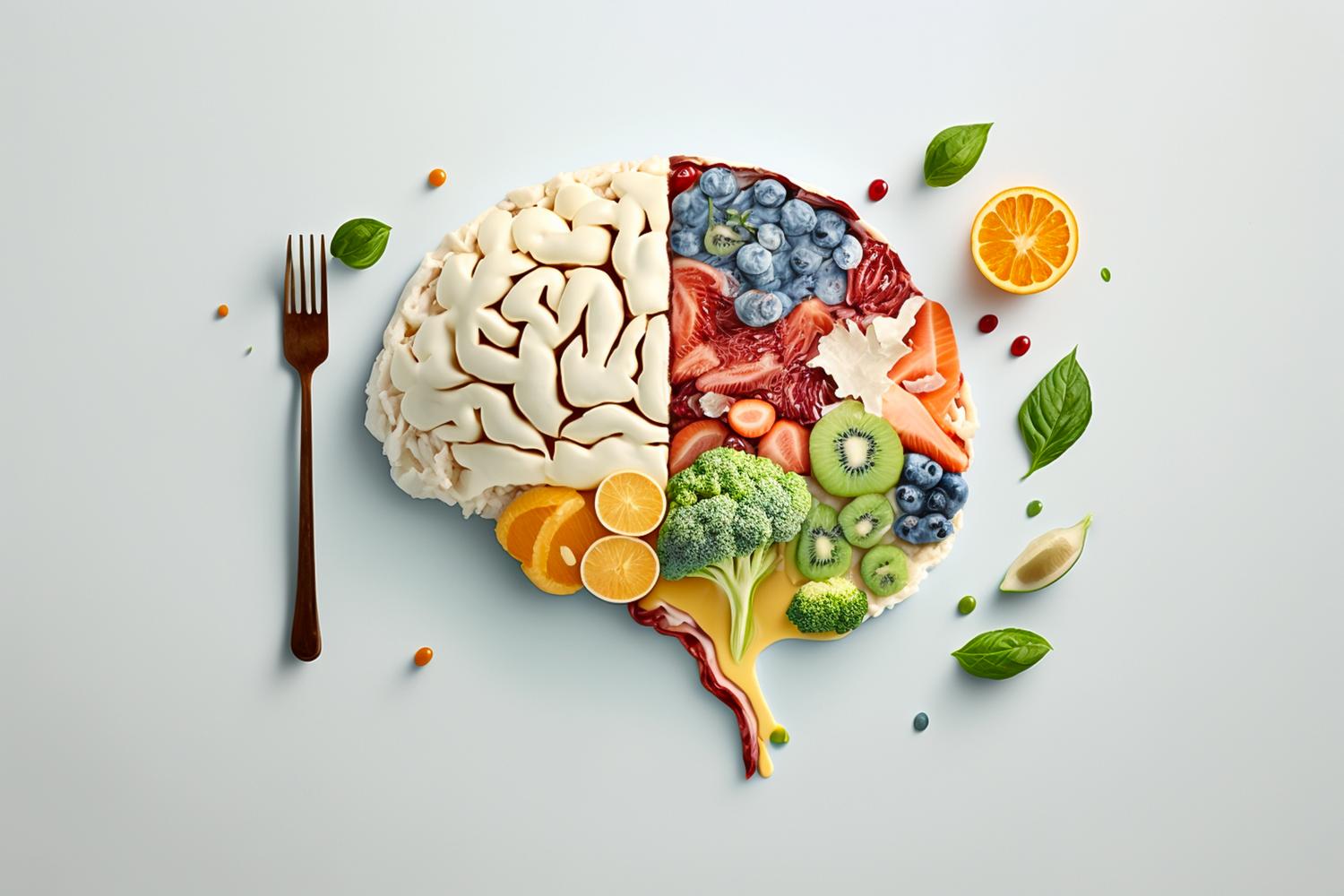Mind-Gut Connection: How Stress Impacts Gut Health
A deeper dive into the connection between stress and gastrointestinal symptoms
Between economic uncertainty, the COVID-19 pandemic and job security fears, stress has become an unwelcome companion for many over the past several years. A recent poll by the American Psychiatric Association found that in 2022, nearly two out of five (37%) Americans rated their mental health as only fair or poor, up from 31% in 2021.
While we are all familiar with the impact of stress on mental well-being, research also shows that there’s an intricate connection between stress and our digestive system. This connection, known as the mind-gut axis, is an essential aspect of our overall health that warrants deeper understanding and attention.
In recognition of Stress Awareness Month, we spoke with Dr. Adam Moskowitz, MD, a board-certified internal medicine physician, to talk about the connection between stress and diet, and how disruptions to that connection can trigger or exacerbate gastrointestinal issues like constipation, bloating and irritable bowel syndrome (IBS).
What is the mind-gut connection?
The mind-gut connection, also known as the gut-brain axis, is a complex communication system between the central nervous system (CNS) and the enteric nervous system (ENS) of the gastrointestinal tract. This intricate relationship involves a network of neurons, hormones and neurotransmitters that allow the gut and brain to communicate constantly, influencing one another's functions.
The gut microbiome, which consists of trillions of microorganisms living in the gastrointestinal tract, also plays a significant role in this connection, contributing to both mental and digestive health. Research has shown that stress, anxiety and other emotional states can disrupt the gut microbiome balance, leading to alterations in gut function (also known as leaky gut). Conversely, gut disturbances can send signals to the brain, potentially triggering mood changes and other psychological symptoms. Understanding the mind-gut connection is essential for promoting overall health, because the interplay between these systems can have a profound impact on an individual's well-being.
“What the mind dwells upon, the body acts upon,” says Dr. Moskowitz. “We constantly see this exemplified with stressed or anxious patients who are experiencing gastrointestinal issues like IBS. It’s actually one of the reasons why we sometimes use neurology and psychiatry medication to calm down gut symptoms.”
What kind of gut symptoms can anxiety and stress contribute to, and vice versa?
Stress, anxiety and depression can lead to increased gut inflammation, causing symptoms such as gas, bloating and constipation. Work stress, life changes and even relationship problems can be a trigger for GI symptoms. In fact, a 2018 study found that couples exhibiting more hostile conflict behavior toward their partner had more lipopolysaccharide-binding proteins (a sign that more bacteria are starting to seep into gut circulation) than less hostile couples. Dr. Moskowitz has also noticed a large number of patients in recent years who are dealing with stress-related GI symptoms, estimating that about three-quarters of the patients at his practice are dealing with gas and bloating.
Being aware of your gut symptoms can be the first step toward addressing them. “Patients need to know what their triggers are,” says Dr. Moskowitz. “If you deal with a lot of gas and bloating after being in certain stressful situations or eating certain foods, try to be mindful of what’s causing those symptoms.”
How can you prevent stress-related gut problems?
Stress management techniques such as meditation, therapy and practicing mindfulness are all options when trying to resolve stress-related gut symptoms. Dr. Moskowitz also utilizes a combination of holistic and medicinal solutions in his approach to GI symptom prevention.
“When patients have stress-related gastrointestinal issues, I typically try to take a non-medicated approach first,” he says. “I might prescribe chamomile tea with fresh ginger root, which is great because it’s safe for pregnant women. I also sometimes suggest peppermint oil, which has calming properties as well.” Certain antidepressants, such as Zoloft, can slow down the digestive tract and may offer relief for conditions such as IBS as well. If stress management techniques and medicine aren’t working for patients, Dr. Moskwitz sometimes takes an alternative approach: biofeedback.
Biofeedback is a type of mind-body therapy session in which a clinician uses sensors or equipment to measure certain bodily functions while the patient views changes on a screen. For motility (function of the digestive tract) conditions such as constipation or fecal incontinence, a small balloon is typically inserted into a patient’s rectum to see how different muscles are contracting and simulate different responses.
"With biofeedback, we tell the patient to contract their muscles and we can see on a monitor exactly how their body is responding psychologically. It can be extremely helpful for patients to visually understand why and how their issues are occurring, and how to prevent them."
Dr. Adam Moskowitz, MD
“When patients are constipated, their muscles that are supposed to be relaxing are contracting and vice versa,” says Dr. Moskowitz. “With biofeedback, we tell the patient to contract their muscles and we can see on a monitor exactly how their body is responding psychologically. It can be extremely helpful for patients to visually understand why and how their issues are occurring, and how to prevent them.”
What constitutes a healthy gut?
According to Dr. Moskowitz, the concept of a “healthy gut” can vary from person to person, but it generally means that there are more good bacteria than bad bacteria in your gut. While there isn’t a set formula for how to improve gut health, he typically suggests trying some of the following dietary changes to see if GI symptoms reside:
Avoid Milk: Contrary to popular belief, says Dr. Moskowitz, milk can actually have a pro-inflammatory effect. “Adults don’t digest milk the same way that children do - they don’t have the same digestive enzymes that kids do,” he says. Instead, it might be worth testing out some dairy-free alternatives to see if gas, bloating or other GI symptoms subside.
Include More Fiber In Your Diet: Fiber plays a vital role in promoting healthy digestion by adding bulk and softness to stools, making them easier to pass through the gastrointestinal tract. Food-rich foods such as oat bran, apples and beans all help to aid digestion.
Introduce Fermented Foods: “Some fermented foods are helpful for the gut because they reduce irritation and feed healthy bacteria,” he says. Kombucha (a fermented tea drink), kefir (a fermented yogurt drink), and sauerkraut or kimchi (fermented cabbage) are all rich in probiotics that can help keep the gut balanced.
As Stress Awareness Month comes to a close, it’s important to remember that the mind-gut connection is a critical aspect of our overall health that shouldn’t be overlooked. The intricate interplay between our emotional states and our gastrointestinal system emphasizes the importance of being mindful of both stress and GI symptoms.
If you are seeking assistance with stress management through therapy, or if you are experiencing gastrointestinal symptoms and require medical diagnoses or treatment, Sesame allows you to browse and schedule with thousands of board-certified clinicians so that you can get the fast, convenient care you need. Simply browse, book and speak with a licensed professional so that you can address the root causes of stress-induced gut problems and pave the way for a healthier, happier life.









